MercoPress. South Atlantic News Agency
Tag: Graham Pascoe
-
Monday, January 19th 2026 - 12:46 UTC
Falklands: website of the Islands’ Dictionary of Biographies 2025 success
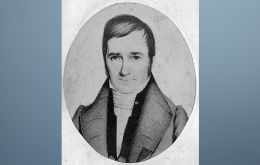
2025 saw an increase in the number of ‘hits’ on the website of the Dictionary of Falklands Biography, DBF. The total number of hits was 27,025, a substantial increase on the previous year’s figure of 22,257.
-
Saturday, June 22nd 2024 - 15:40 UTC
Dr. Graham Pascoe’s comprehensive history of the Falkland Islands is now available
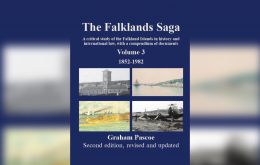
The Falklands Saga describes the history and legal status of the Falkland Islands in four A4 volumes, with illustrations, tables of population and shipping, and a compendium of hundreds of historical and legal documents, in English and also (where different) in their original languages, Spanish, French, German, Latin or Dutch. There is a full apparatus criticus: each volume contains over 2,500 footnotes, a glossary, an appendix and a bibliography.
-
Friday, June 9th 2023 - 21:07 UTC
Pascoe's third volume of “Falklands Saga,” covering 1852/1982

The third volume of Graham Pascoe’s Falklands Saga has been published: it is as substantial as his two earlier volumes – 730 pages – and covers the period 1852 to 1982.
-
Tuesday, October 27th 2020 - 08:25 UTC
Falklands and privateer/pirate captain David Jewett 1820 adventure
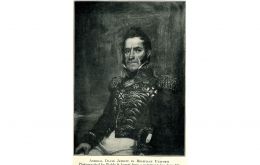
In response to Argentina’s planned commemorations of the 200th anniversary of the visit to the Falklands by the privateer captain David Jewett in 1820 and his purported “taking of possession” of the Islands for Argentina, historian Graham Pascoe has released the paper ‘David Jewett’s visit to the Falklands, 1820-21: no valid “possession-taking.” Dr. Pascoe notes in his abstract that before David Jewett arrived he had captured a neutral Portuguese ship, and he captured another neutral US ship in the Islands.
-
Friday, June 12th 2020 - 07:08 UTC
“Falkland Facts and Fallacies”, a new contribution to the Falklands' debate
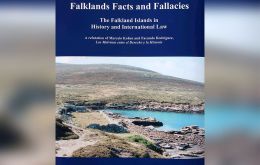
By historian David Tatham (*) - This book by Graham Pascoe describes itself as a refutation of a work by two Argentine lawyers, Professor Marcelo Kohen and Facundo Rodríguez – and that is just what it is.
-
Tuesday, October 14th 2014 - 06:00 UTC
A masterly account of the Battle of the Falklands 1914
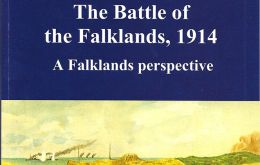
The Battle of the Falklands 1914 By Graham Pascoe reviewed by David Tatham - With the centenary of the 1914 naval battle coming up in December and commemorations planned for Falkland Islands capital, Stanley and London, Graham Pascoe’s concise account of the battles of Coronel and the Falkland Islands is well timed.
-
Thursday, June 13th 2013 - 17:17 UTC
Falkland Islands asserts their democratic rights

The remarkable transformation of the Falkland Islands into the democratic, prosperous, hardworking community of today was applauded by hundreds of supporters gathered in London for the annual reception in London marking the liberation of the Islands from Argentine invasion and occupation in 1982.
-
Friday, February 15th 2013 - 19:35 UTC
February 1833: Parallel truths in parallel universes: can that be the only explanation?
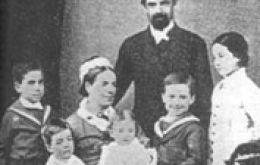
By John Fowler - According to the Argentine view of things, the Falkland Islands are Las Islas Malvinas and the capital city is not Stanley, which was founded in 1844, but Ushuaia in Tierra del Fuego, which did not really begin to be a town till 1881 with the establishment of a penal colony there.
-
Sunday, February 6th 2011 - 19:30 UTC
Unilateral facts, indeed
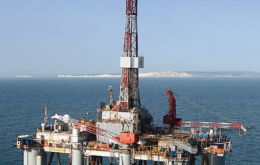
By Andrés Cisneros for the Herald
Peter Pepper and Graham Pascoe, who have spent years writing profusely on the issue, have just written a new article seeking to enlighten us on Malvinas rights.
